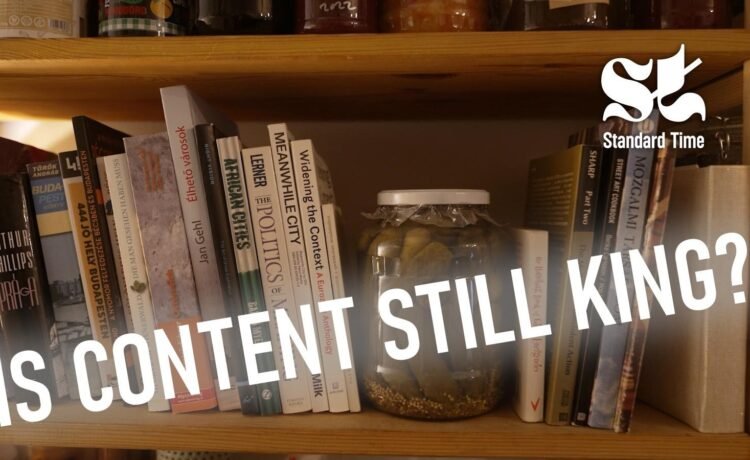
The pace of media consumption has accelerated in the past few decades. News cycles have become ever shorter since – a tendency started by radio and TV and further sped up by the internet boom. In a timespan of ten minutes or less, it’s possible to know about the weather, local updates, and geo-political analyses of recent events.
Over 60% of Gen Zers and millennials rely on one or more social media platforms as their news source. They have shifted from conventional means to obtain news, such as radio or television, in favour of podcasts and online videos, to name a few examples. The internet has definitely become the main source of new information and has allowed people to diversify their sources on their own accord, pushing also for more open-source platforms, and defying the limits of freedom of speech.
Not devoid of state propaganda, the demand for press freedom persists amongst journalists globally, as censorship is exercised on all fronts. Whether through direct state repression, or more subtle algorithmic silencing, journalism is defined by the vehicles that carry it.
One thing remains constant in the face of the journalistic wheel being reinvented, and it’s that journalists and media producers still need to sustain themselves on a material level. According to Dr. Gábor Polyák, young people are more inclined to pay for a Netflix subscription than a small news media outlet, making it ever more difficult to rely on the audience to fund journalists’ labour.
Fiona Nzingo argues that building a relationship with the audience is one approach to get them to pay for the continuation of journalists’ work, however unsustainable that may be. Monetizing off of clicks and views is another one that has emerged in recent years. However, state and long-term donor funding continue to be the most reliable sources of income, but this too comes at a price; the push and pull between the limitations of publishing and affording to do so remains prevalent.
Outcries for independent, self-sustained media are still on the rise, and a mixture of different sources of funding is still required to uphold certain ethics. In Europe particularly, there’s still a long way to go when it comes to proposing formal strategies to do so.
Keeping up with the interests of both the young and old is ever-demanding, and this competition for attention can be a hindrance to the advancement of news as we know it.
We hear more from our guests:
Fiona Nzingo is a journalist from Kenya, who currently serves as membership and engagement manager at the Global Forum for Media Development. She is based in Stockholm, Sweden.
Dr. Gábor Polyák is the head of ELTE MÉDIA, the School of Media Studies at Eötvös Loránd University, Budapest, Hungary. He’s also the head of the think tank Mérték Media Monitor.
Vladimir Radinović is a co-founder of Podcast.rs from Belgrade, Serbia. He is on the board of directors of the Community Media Forum of Europe.
We meet with them at the School of English and American Studies Library at the Eötvös Loránd University (ELTE) in Budapest, Hungary.
Creative team
Réka Kinga Papp, editor-in-chief
Merve Akyel, art director
Szilvia Pintér, producer
Zsófia Gabriella Papp, digital producer
Salma Shaka, writer-editor
Margarita Lechner, writer-editor
Priyanka Hutschenreiter, project assistant
Management
Hermann Riessner managing director
Judit Csikós project manager
Csilla Nagyné Kardos, office administration
Video Crew Budapest
Nóra Ruszkai, sound engineering
Gergely Áron Pápai, photography
László Halász, photography
Postproduction
Nóra Ruszkai, lead video editor
Kateryna Kuzmenko dialogue editor
Art
Victor Maria Lima, animation
Cornelia Frischauf, theme music
Captions and subtitles
Julia Sobota closed captions, Polish and French subtitles; language versions management
Farah Ayyash Arabic subtitles
Mia Belén Soriano Spanish subtitles
Marta Ferdebar Croatian subtitles
Lídia Nádori German subtitles
Katalin Szlukovényi Hungarian subtitles
Daniela Univazo German subtitles
Olena Yermakova Ukrainian subtitles
Aida Yermekbayeva Russian subtitles
Mars Zaslavsky Italian subtitles
Host
The School of English and American Studies Library at the Eötvös Loránd University (ELTE) in Budapest, Hungary.
Sources
Are younger generations moving away from traditional news sources? by Deloitte.
Using social media appears to diversify your news diet, not narrow it by Richard Fletcher and Rasmus Kleis Nielsen, NiemanLab.
An Introduction to Funding Journalism and Media by Sameer Padania, Macroscope.
Disclosure
This talk show is a Display Europe production: a ground-breaking media platform anchored in public values.
This programme is co-funded by the Creative Europe Programme of the European Union and the European Cultural Foundation.
Importantly, the views and opinions expressed here are those of the authors and speakers only and do not necessarily reflect those of the European Union or the European Education and Culture Executive Agency (EACEA). Neither the European Union nor the EACEA can be held responsible for them.

















